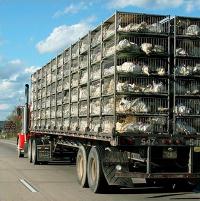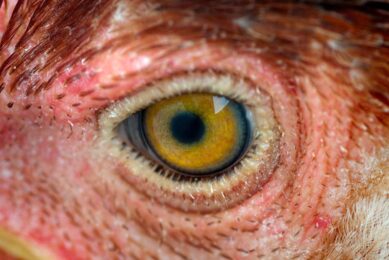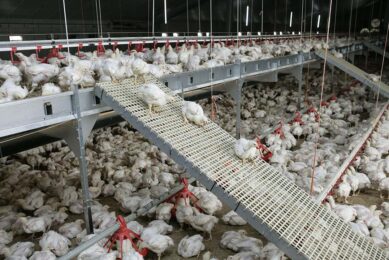NCC criticizes chicken truck study

The National Chicken Council has criticised the study of bacteria allegedly flying off chicken trucks as unfocused, unrealistic, and rather unsafe.
The study claims that chickens on trucks being transported to processing plants were releasing bacteria into the environment. NCC Director of Science and Technology Steve Pretanik made several points on the study:
“The study collected samples of Enterococcus bacteria. However, Enterococcus is a large genus of species, and only two particular species are of any significant concern to human health: E. faecalis and E. faecium. The Silbergeld study did not attempt to identity the particular species collected, so it is unknown if the bacteria in the study are actually a hazard to human health, especially at the low levels found,” said Pretanik.
“Furthermore, Enterococcus is notorious for its high level of endemic antibiotic resistance. That is, no matter where you find Enterococcus, there is a good chance that it will be resistant to antibiotics. The level of resistance found by Silbergeld may very well be typical of these bacteria regardless of the setting,” he continued.
“Dr Silbergeld’s chicken truck study is unrealistic in that few people would choose to tailgate a load of live chickens for 17 miles with the windows rolled down. Most people would have the sense to stay out of the truck’s slipstream, thereby avoiding the hazards she claims to have found,” he added.
“We are concerned about the safety aspects of the study. The chase vehicle closely followed (the study says “two or three car lengths”) several tractor-trailers on a four-lane highway, presumably moving at 55 miles per hour. The recommended safe following distance is at least five seconds. The close range described in the study is quite dangerous. If the truck had been required to hit the brakes, the chase vehicle could have slammed into the truck. Tailgating a tractor-trailer is much more dangerous than being around live chickens.”
Related link:
The study: Transporting broilers spreads bacteria to humans
Join 31,000+ subscribers
Subscribe to our newsletter to stay updated about all the need-to-know content in the poultry sector, three times a week. Beheer
Beheer








 WP Admin
WP Admin  Bewerk bericht
Bewerk bericht